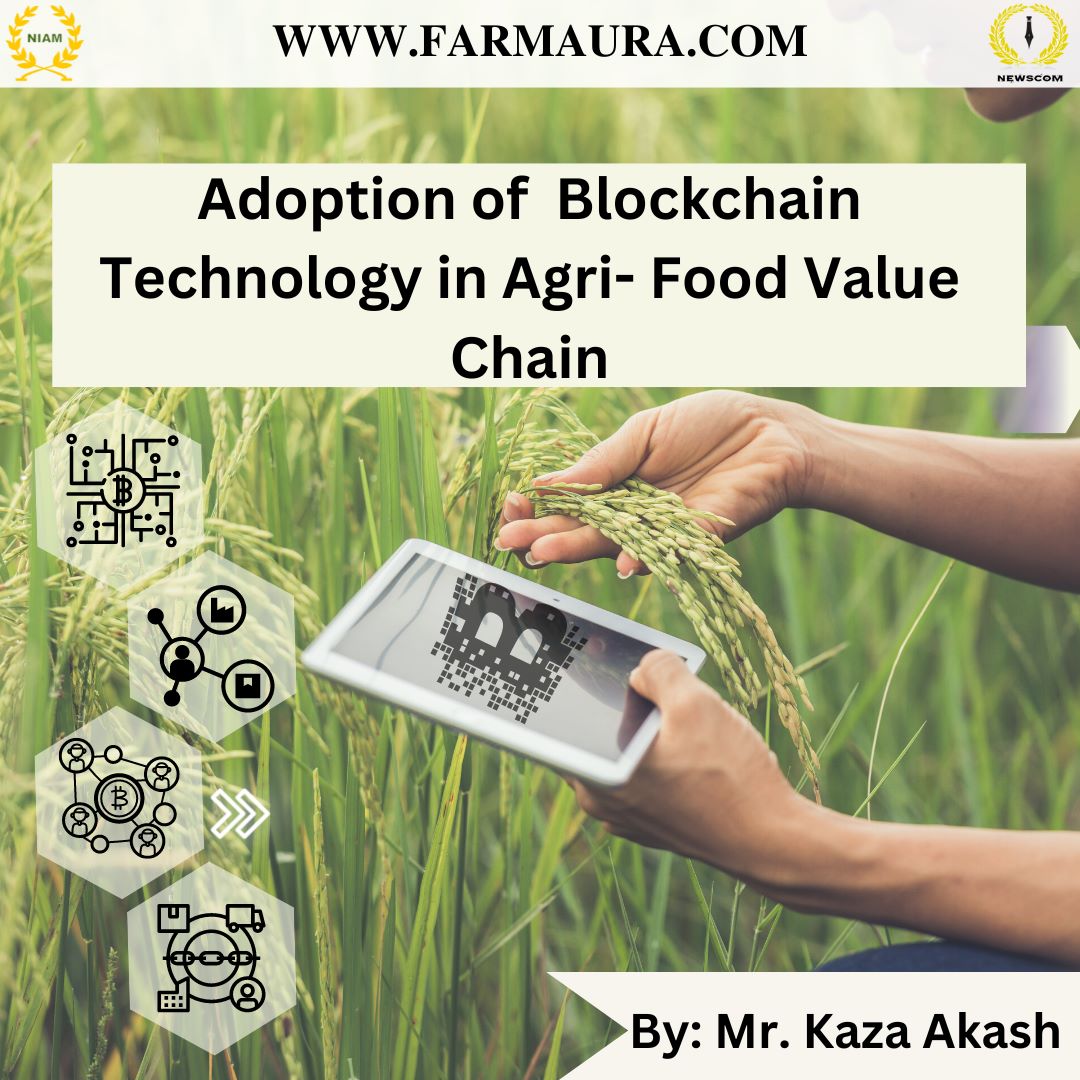The agri-food value chain has significant importance, and it is essential to ensure that these value chains run smoothly and successfully with the adoption of new technologies from time to time. This is a complex system responsible for the circulation of agri-food products from production to consumption. Value chain members play a crucial role in meeting consumer demand and maintaining product quality and safety. In the last few decades, a great number of food scandals such as mad cow disease, the horsemeat scandal, toxic milk powder, genetically modified food, and trench oil have raised consumer concerns related to the quality and safety of food and the reliability of food label information. Due to these situations, customers increasingly request detailed information on the entire circulation of agri-food products. Governments have introduced measures to correct market inefficiencies and failures, assuring the validity of labeled information on food products. The adoption of technological solutions like Radio Frequency Identification technology, Electronic identification, barcodes, smart packaging devices, and biosensors has enabled more transparent and efficient management of traced products. But existing traceability systems do not provide consistent information flow along the food chains.
With the rapid development of rapid technologies in the value chain, emerging technologies such as Information and Communication Technology (ICT) and the Internet of Things (IoT) have been applied to the agri-food value chain. But these systems are centralized, monopolistic, asymmetric, and opaque and may result in trust problems.
A potential solution to alleviate the above issues and concerns can be the use of Blockchain technology. Blockchain technology (BCT) is a digital technology that allows transactions and information flow without any intermediary. The advantage of Blockchain technology over other technologies is that it is decentralized, immutable, consensus-driven, and democratic. These make the technology more trustworthy and transparent in the agri-food value chain. Blockchain is a distributed database system that records transactional data and other digital events that have been executed and shared among value chain members. It enables agri-food value chain members to establish decentralized consensus on the sequence of events and the current status of the transaction. BCT uses a combination of different technologies that provide an innovative solution to achieve food traceability, transparency, safety, and security. BCT provides permanent transaction records, which are grouped into individual blocks and cannot be tampered with. It is difficult to modify transactions on the blockchain as all the blocks are interconnected. Blockchain technology has many applications in the agri-food value chain, such as food delivery and shipping data records, online food ordering and transaction data records, food quality assurance data, etc.
Challenges for the Adoption of Blockchain technology: Blockchain technology is still in the testing phase, and its adoption in agri-food value chain management has some issues that have to be tackled. There are six main challenges for the adoption of BCT in the agri-food value chain: storage capacity and scalability issues, privacy leakage, regulation problems, high-cost problems, throughput and latency issues, and lack of skills.
Conclusion: Blockchain technology creates a platform for better trust and traceability of the entire transaction of agri-food products from farm to fork. Properties like decentralized and immutability make blockchain technology much better when compared to other technologies. Although there are challenges in the adoption of BCT, we hope that these challenges can be tackled soon.




